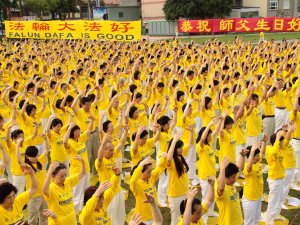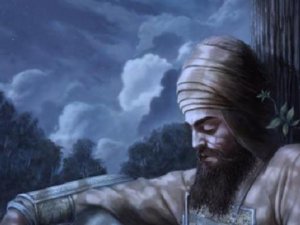If you are reading this column I can assume you are not dead. You have survived the Sikh genocide which took place from 1984-1994. Also if you are reading this I know you have brains and opportunity. So you must remember that you are a lethal combination of brains, conscience and being a survivor in a world where genocide denial is a growing norm. We are in a post genocide period of history. This makes each and every one of us Sikh genocide scholars. Walking pieces of history. Walking historians. The battle is on to document, notate, record our history. The weapon is the pen and you should remember that this battle is being lost day by day by the international genocide scholars movement the world over. Paid scholars! prestigious researchers in top universities, grass root activists threatened with torture and not just us. We must present the Sikh genocide within forums, universities, your neighbours, churches, temples, the UN and everyone moving so we learn what we can from the terrible atrocities and vow it never happen again. We don't have to wait for an NGO, we don't have to wait for our LLB to take on cases with state crime perpetrators and we do not need to worry if we have the right degrees or any degrees. We have to be so determined and so versatile in our thinking.
If we can see, we can hear, we can write, then we are lethal walking weapons to the state crime perpetrators of genocide in the world who to this day walk this earth.
I will share with you a story, a true story of one of the victims of the Sikh Genocide, Gurpal Singh who was studying for his LLB and his murder by the Indian state. It is just a glimpse of one face of the victims.
"Gurpal Singh whose nickname was Teetu came from Mangwal, near Guru Ghar. He was a student studying for his LLB. He'd studied his B.A. The son of Babu Singh and Bachan Kaur came from Mangwal, Mann Patti near Guru Ghar, Sangrur. About 15 days before Gurpal was killed by the Indian police, SHO Tarlochan Singh of Police Station Sangrur (Sadar) knocked at the door of Gurpal Singh's house. The SHO saw Gurpal Singh whose leg was plastered. He ordered him to get up. Gurpal Singh stood up with the help of crutches. Then he asked him to sit down. At 9 P.M. on 30th November 1992 the police entered the house after scaling the boundary wall and abducted Gurpal Singh. Witnesses saw that the police party consisted of SHO of Sadar P.S. Sangrur, Tarlochan Singh, DSP Sangrur, Mr. Bhullar and SSP Distt. Sangrur, Narinderpal Singh who all wore police uniforms- khaki police uniforms with red turbans. They had wrapped their bodies with blankets. Gurpal Singh was missing from this day onwards. His parents were distraught. Gurpal's elder brother Palwinder Singh fell sick after Gurpal's disappearance as he could not bear the sight of whole family always crying for Gurpal. Palwinder died later. His family were devastated by the loss of their two sons, from his father Babu Singh, who is 61, to his mum, Bachan Kaur who is 58, it was a tragedy they did not survive. He was survived by his niece, Preet Inder Kaur who is 6, his nephew, Kulbir Singh who is 3 and Paramjit Kaur, his sister in law after Gurpal's brother passed away after Gurpal was killed." (recorded in 2001)"
I have kept the facts near to the original narration as possible. There is no reason why each and every one of us can't remember Gurpal Singh and remember each and everyone of the faces of the victims of the Sikh genocide.
I once attended a conference on genocide scholars. I was no scholar but having seen thousands of survivors of the genocide I was invited. More importantly I was told later that it was because I had attempted to give voice through literature, through my novel Saffron Salvation, that the genocide scholars were interested. They felt art is very powerful in moving people to understand what has happened in genocide and not just bare statistics. I was so encouraged by the camaraderie of these people from across the world, Yale University professors trying to prove the Indigenous genocide, people who had interviewed survivors in Rwanda. I had spent years and years trying to understand the Sikh genocide through the eyes of its victims and found my own community going into amnesia or into simply delegating visiting victims, to faceless groups who might go out there one day.
There are thousands if not millions of witnesses of the Sikh genocide: physical survivors, physical witnesses, those who witnessed from afar, those whose lives changed forever in other countries. We need many more Sikh genocide scholars to emerge and to document what it is that major countries are trying to cover up and put into a void. These Sikhs live in your community, may be your relatives, may be in the gurudwaras, may be in parks thinking the world has forgotten their witnessing and surviving genocide.
I was so encouraged by international genocide scholars for the importance of art in genocide. I got no encouragement from any other scholarly world. Art is the 'face' of human destruction. I also learned that it wasn't as important to wait and get several degrees in the subject. If people could survey those around them we would have hundreds of valuable pieces of research. An example of research could be: Eg. 100 Indian citizens, aged 16-20- what are their thoughts on 1984, then a paper could be written showing how the Genocidal denial by India of the Sikh genocide has impacted on the education of young citizens, ie the amnesia of India in a future generation. These small proofs, small white papers become part of an armour to prove that the Sikh genocide has taken place and one day these small proofs will be important.
If we as Sikhs could interview or speak to even ten to twenty people regarding their reflections of what happened - what they witnessed when the Sikh genocide happened, imagine how may sparks of papers we would have.
The genocide scholar community is in a big battle to try to prove genocide. Recently Amal Clooney has been trying to speak through YouTube that the Yazidi are facing genocide.
I don't know if you have ever heard of Lemkin. To be honest until I joined the genocide scholars researchers I hadn't either. Only seven people turned up at his funeral. He was penniless by the time he died. He was a survivor of the Jewish Holocaust but spent his entire life trying to take on the United Nations in creating an Act to stop Genocide around the world and coined the term genocide. And his biggest worry was that as millions of Christians were murdered in the Armenian genocide, and later in the Jewish genocide….the world had not and would not stop. Countries would keep seeing the need for sovereignty to be paramount even when a country was internally mass murdering its citizens and countries would not step in for fear of interfering in 'internal affairs.' Unfortunately the Sikh genocide also fell into this category and there have now been attempts to pinpoint the Sikh genocide into the few days around the Delhi massacre, which could be used by the United Nations. But the Sikh genocide took place over a ten year period when the Indian state hid behind the walls of laws like TADA, torture chambers, judicial apathy by judges refusing to look at cases of poor people whose sons had gone missing at the hands of the police, refusing to acknowledge habeas corpus, of extra judicial killings, when their loved ones could have been saved. The State crimes of India were enormous.
It isn't too late to record the stories of witnesses of Sikh survivors of genocide and those who were stuck in countries outside of Punjab, whose childhoods were destroyed- If we can join the genocide scholar's movement, try to use our brains, our ability to record, ability to document, ability to interview those who we know in the community or even stand outside the gurudwara and ask simple questions of where people were in 1984, what happened, and any other questions that shed light of individuals we can create the Sikh genocide research needed. We have to remember the boy in plaster, Gurpal Singh, who was studying for an LLB, that the Indian police mercilessly murdered. There were so many thousands like him, who have become nameless, faceless victims of the Sikh genocide.
Each of us could become a Lemkin. Die penniless, with no one at our funeral, but gosh the one thing no one could accuse us of is letting the world sleep on through its cruelty towards one another. Our duties towards the forgotten victims of this world remain forever as we work to protect those around us and enjoy our freedom. God gave us brains and we did not die in the Sikh genocide, we must live our lives like Lemkin and not be worried if people love us, if we have enough, who will remember us, but change this world irrevocably for good. Just seven people were at Lemkin's funeral but his work was to change the world and rid future generations of genocide.





